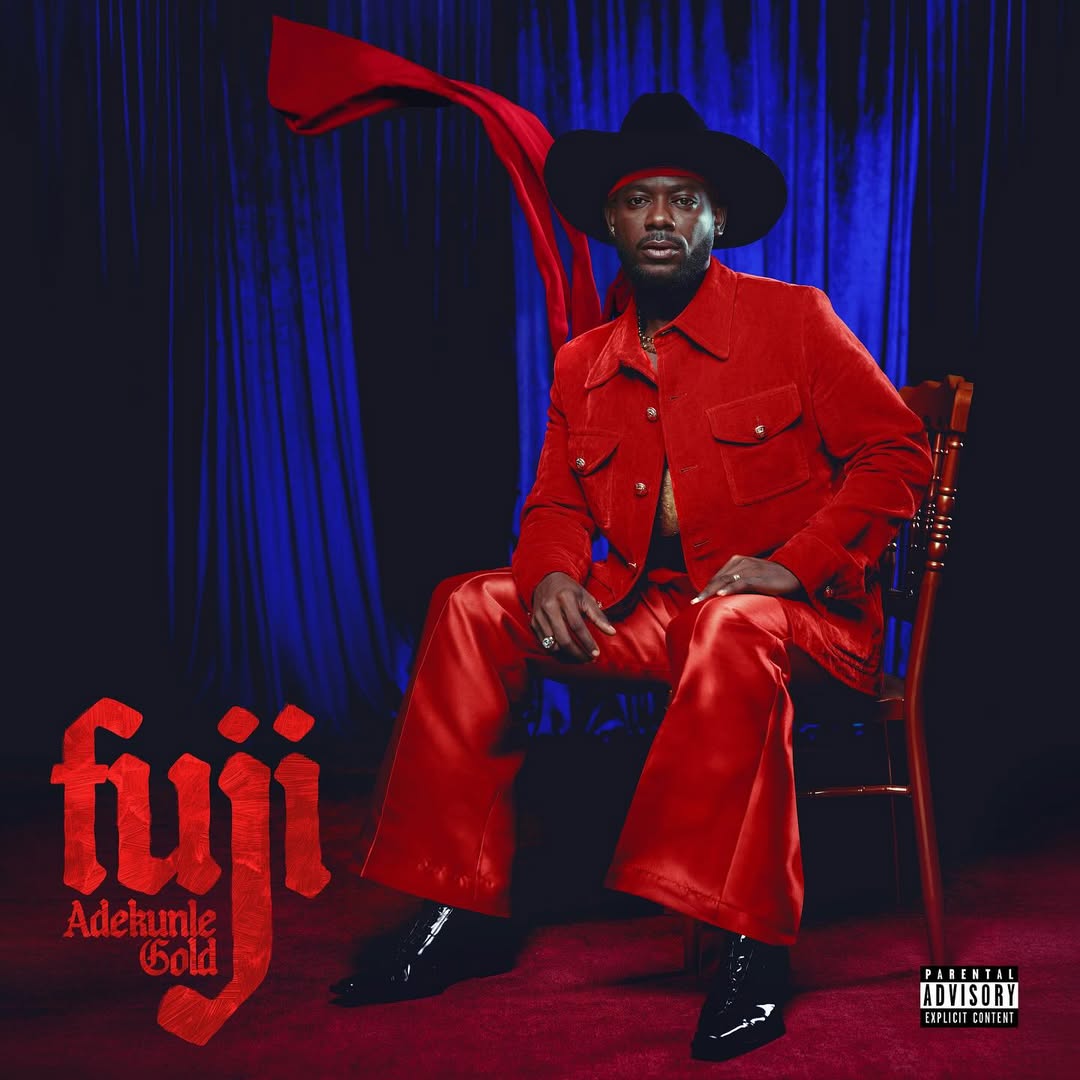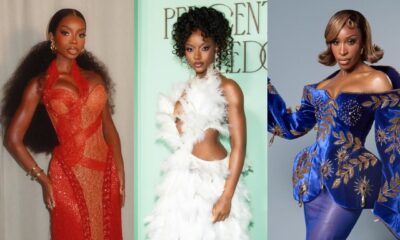Features
Adekunle Gold’s New Album is Fuji and More

Photo Credit: Adekunle Gold /Instagram
One of the best things that happens to an artist is evolution. A creative has the freedom to constantly evolve and experiment, ultimately arriving at a full body of work that is appreciated as art. In music, this freedom has allowed Nigerian artists in modern times to experiment with different sounds, blending African rhythms with foreign tunes, and creating new genres while also appreciating what is considered the source: Afrobeat.
A Nigerian artist whose evolution is very evident to everyone is Adekunle Gold. Since Sade, a slow, soulful love-yearning song, Gold has pushed himself to avoid being boxed into any tag, such as a lover boy or otherwise. He has experimented with different sounds, explored various themes in his songs, and transformed his physical appearance several times. With each album, you could trace a phase of his evolution.
In the debut album Gold, Adekunle Gold hadn’t yet added flesh, and the songs feel like an appeal for what’s to come. He sings in Pick Up, a song off the album, “Baba God, pick up the call,” the call of success. In AfroPop Vol. 1, his third album, his voice has matured into that of someone who, at the very least, could afford to buy himself out of any situation he finds himself in and is bold enough to snap back at whoever confronts him. Then comes the fourth album, Catch Me If You Can, which, from its title alone, explains itself that he can simply not be held down by anything, not even himself.
Now, in what could be described as his immaculate maturity, to borrow the words of Peter Drury, he released an album that appreciates what influences who he is and what he does: Fuji. Gold says the album “is Lagos, it’s street royalty, it’s our story, our hustle, our heritage turned global. What we see as everyday in Nigeria deserves to sit on the world’s biggest stages.” What I believe he means is that he’s using Fuji, the word, as a representation of Nigerian culture and the kind he experienced while growing up.
Of course, what instantly comes to mind when Fuji is mentioned is the musical genre of Sikiru Ayinde Barrister, Ayinla Kollington, Saheed Osupa, and other Fuji artists. But what Adekunle Gold is expressing with this album is more than the genre itself. Listening to the album from the first track to the last takes one through a kind of journey that peels Adekunle Gold in layers; you could experience every other album of his in Fuji.
The album has fifteen tracks—Big Fish, Don Corleone, Bobo, Coco Money, Believe, My Love Is the Same, Love Is an Action, Many People, Attack, Only God Can Save Me, Lailo, Oba, Simile, I’m Not Done, and Obimo—but to my surprise, critics expected Adekunle Gold, an Afrobeats/Afropop artist, to give them a Fuji album simply because he titled it so. The album is inspired by Fuji, and I believe it would be hypocritical if, after listening to tracks like Big Fish, Don Corleone, Bobo, and Oba, anyone could still say they couldn’t find Fuji in it. As I listened to Don Corleone, I could hear inflexions from Sikiru Ayinde Barrister’s Suru Baba Iwa, where he sings “Madeniyan madeniyan, niwo yii ola, madeniyan,” and Adekunle remixed it to “Don Corleone, mo ron folu of lele, don corleone.”
What I never thought could be a thing of argument was the album cover, where Adekunle Gold is dressed in a red cowboy suit, sitting in a brown chair, with blue drapes in the background. When does how a person dresses on an album cover determine what they’d sound like? I understand that the cover is an extension of the album, but we often forget that the first interpretation of art begins with the artist themselves. Indeed, when the art leaves the hands of the artist, it can attract multiple interpretations, but what the album cover of Adekunle Gold’s Fuji does not negate is the fact that the album is Fuji-inspired. Sikiru Ayinde Barrister, credited by many as the originator of Fuji, appeared in suits on some of his album covers.
What Adekunle Gold has done over the years is refuse to allow his fans to sit with him on a sound before evolving into another, which is never a bad thing, so long as the art remains genuine and pure.
When Wizkid titled his most successful album yet, Made In Lagos, it didn’t mean the album was made in Lagos or for Lagos people; it meant this album was made by someone whom Lagos made. An album title and cover are only a portion of the entire album. There are other stories an artist wishes to narrate. Adekunle Gold’s Fuji is Fuji-inspired, but it also carries the weight of experiences, memories, and influences that shaped him. Because what makes music special is not just the sound but how it transports you to moments, places, and feelings that remind you of who and where you were when you first listened. Fuji does that for AG, and he’s allowed to translate it to fit his creativity because a sound is never static.
AG is still finding uncharted journeys inside of him.























